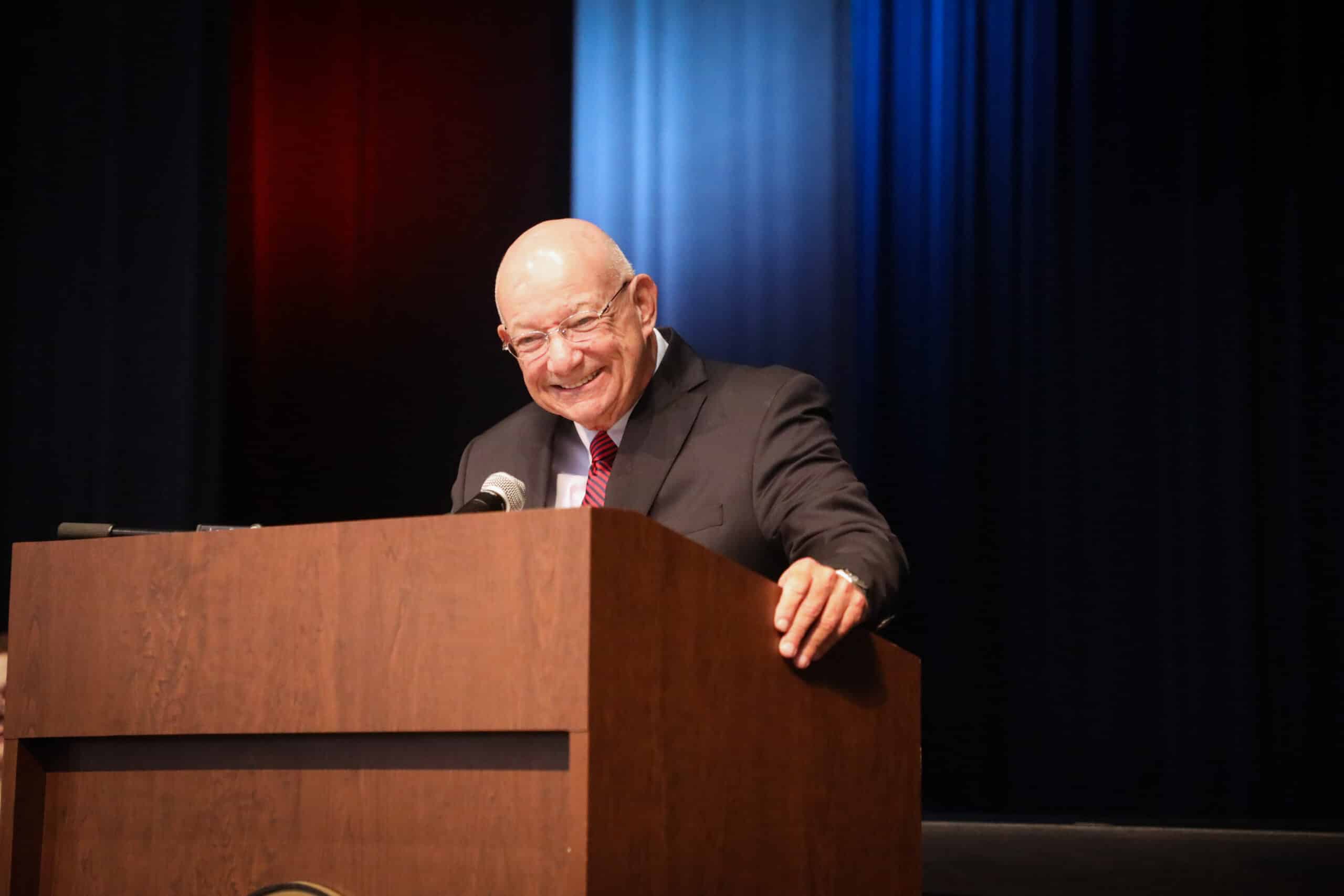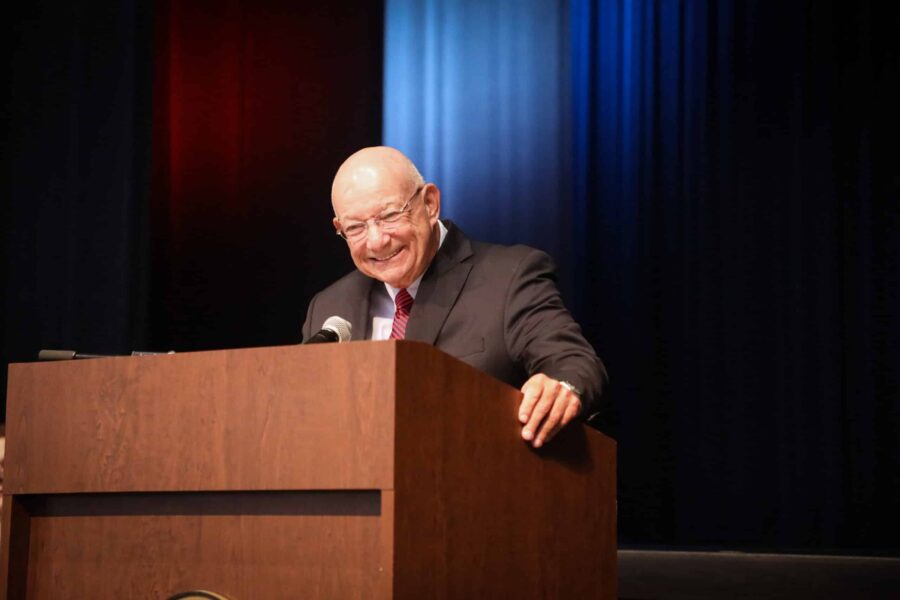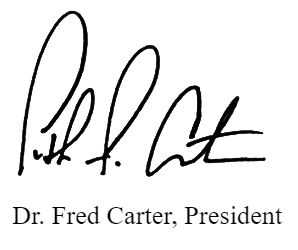May 3, 2024

Letter from the President
Letter from the President
By President Luther F. Carter | Spring/Summer 2024 | FMU Focus Magazine Spring/Summer 2024

Standardized testing has been back in the news recently.
As if it ever left.
The latest developments: research reveals testing to be a reliable predictor of academic achievement;and research reveals testing to bean inaccurate predictor of student success. Standardized admissions testing and its predictive abilities has been the impetus for a massive library of articles, papers, books, and charts, all broken down by assorted categories and variables.
I won’t bore you with the details. There are many.
At Francis Marion, standardized testing has played a role in our admissions process over the years. We have struggled with its meaning, its biases, its incongruities, for decades. It is an imperfect tool, but one thrust upon us.
COVID gave us a literal pause in testing for a while. Along with most colleges and universities, we suspended SAT requirements.
We used that break to reflect on standardized testing and what it meant to our students and to the makeup of our student body.
The most significant conclusion was that the testing pause created a unique opportunity for prospective students who clearly had academic ability, but who, for a variety of reasons, didn’t test particularly well. It allowed them to be more competitive for admission to good colleges and universities. This caused much consternation at many institutions, but at FMU our basic thought was “isn’t that a good thing?”
Numbers are certainly useful for identifying trends and formulating generalities, but an individual score ought not be the basis for determining academic potential or career ability. Above all, the answers to a few hundred questions on any given day should not determine life’s direction.
We used the pause to do something about that.
So, when testing resumed, we made it optional and broadened our admissions criteria to include other factors.
We are not alone in these actions. Many colleges across the country followed suit, and many programs no longer limit admission to the highest-scoring students. Instead, they are selecting people who possess the intellectual ability to master college academics, but who possess more extensive interactive and affective skills. When they graduate, they’ll be better equipped to serve their patients,clients, and customers. They’ll be among the best in whatever career they choose.
This makes sense for the work arena. It makes sense in college admissions, too.
To understand more about the factors contributing to student success, we are now spending more time looking holistically at the background and the experiences that have shaped the lives of the young men and women who apply here. We are considering where they are from, and what they have done outside the classroom. We are listening to people who know them best, both inside the school and throughout the community. As a result, we are creating more interesting and more productive classes, filled with students who have the potential to grow and learn.
Of course, standardized testing remains essential for many of our students because it remains imbedded in the system. The ability to acquire important scholarships, such as South Carolina’s Life and Hope awards, are influenced by these scores. Students can qualify for these scholarships without a test score, but doing so restricts the criteria by which they may qualify. So, at the same time we are de-emphasizing standardized tests in our admissions process, we also recognize that they remain an essential part of the funding. equation for many students. We’ll keep that in mind as we continue to provide still more opportunity for a broader array of students.
But it will not be our guiding star. Instead, we will focus on attracting and admitting students who will benefit most from the very special academic community at FMU, regardless of what the numbers say. Surely that’s a better course than relying on mechanisms that constrain the potential of so many deserving students, desperately trying to pursue a college degree.
For decades, one of this country’s greatest assets was its teacher colleges. At those institutions, you would find young men and women availing themselves of the opportunity for a good education and then devoting their lives to sharing it with others. Sometimes they came from modest backgrounds, but credentials mattered less than good character and the willingness to work hard.
That was a good model, but somehow it slipped away from us. We stopped looking at individuals and started looking at scores. It was easier. It was not better.
Now we are finding our way again. The exigencies of a crisis forced us to go back and look again, to return to those young men and women who are so desirous of having an education in order to serve others. Some will still be teachers. Some will be engineers,biologists, or healthcare professionals. Some might even choose to study and understand the nature and treatment of autism through our newest major — autism studies (see story, page 4).
Our efforts in this regard underscore the essence of what this university is and always has been: a place where good people earn afine education and then go out and make the world better.It is hard to find a test that predicts that.
Maybe we should quit trying







